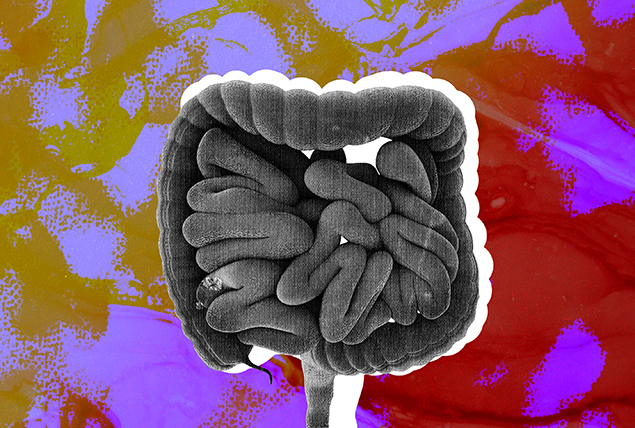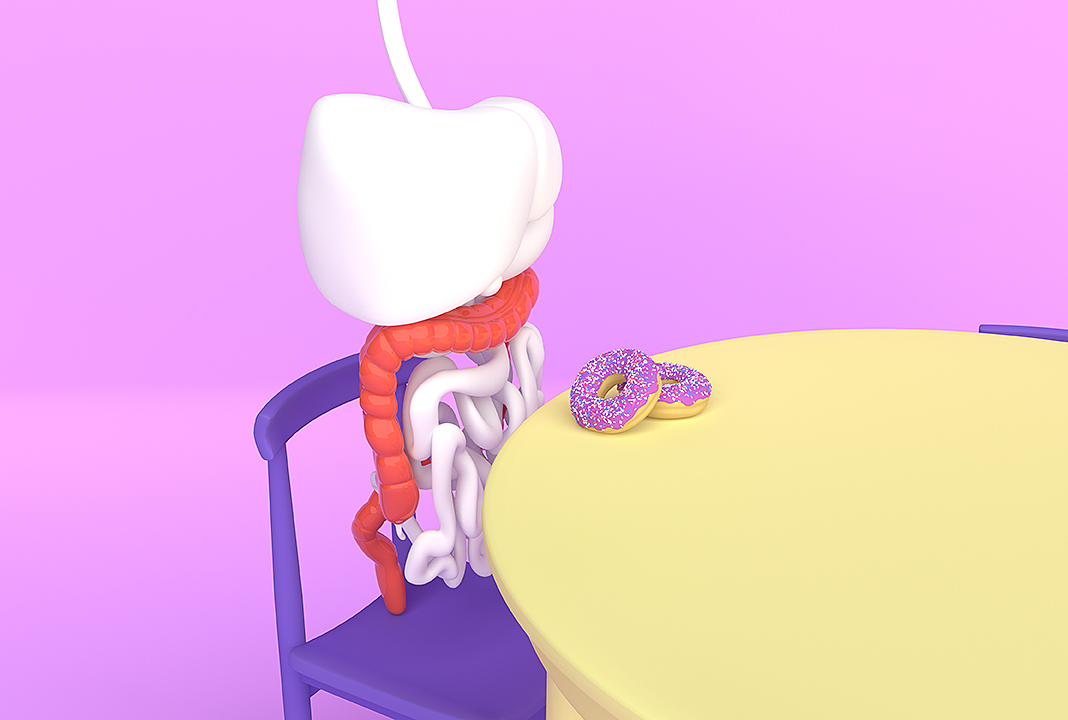Common Food Dye Can Trigger Inflammatory Bowel Disease, Study Finds

Skittles. Strawberry Fanta. Fruit Loops. Doritos. Gatorade Fruit Punch. Nabisco Oreo Winter Chocolate Cookies.
That's just a sneak peek at the long list of snack foods that contain Allura Red AC, which also goes by the names Red Dye 40, FD&C Red 40 and Food Red 17.
New research published in December 2022 in the journal Nature Communications indicated that the ubiquitous red food dye can trigger inflammatory bowel disease (IBD). The small study, carried out on mice, found regular consumption of the colorant harms gut health and promotes inflammation.
For the 12-week study, researchers fed mice a standard diet infused with Allura Red AC on either a daily or weekly basis. As a control, the team fed a third group of mice the same diet with no Allura Red AC. The researchers found mice who consumed daily diets including the food dye developed mild cases of colitis or inflammation of the large intestine.
"We observed that continual exposure to Allura Red AC food dye led to increased susceptibility to colitis by increasing the production of serotonin—a hormone neurotransmitter found in the gut—altering gut microbiota composition and disrupting gut barrier function," said lead study author Waliul Khan, M.B.B.S., Ph.D., a professor in the pathology and molecular medicine department at McMaster University in Hamilton, Ontario, Canada.
Mice that consumed Allura Red AC weekly did not experience increased susceptibility to intestinal inflammation. The researchers noted that weekly consumption of the dye was "more akin to a typical human exposure."
In addition to demonstrating the detrimental effects of Allura Red AC on gut health, the research identified gut serotonin as a "critical factor" mediating these effects, Khan said.
"Approximately 95 percent of the body's serotonin is present in the gut," he explained. "Serotonin is a key-signaling molecule in the gut that is implicated in a number of gut disorders, including IBD. An increase in gut serotonin signaling can influence intestinal barrier function, immune response and gut microbiota composition to promote colitis."
About inflammatory bowel disease
Inflammatory bowel disease—an umbrella term including Crohn's disease and ulcerative colitis—is the most serious chronic inflammatory condition of the human bowel, according to Khan.
"IBDs incidence is increasing worldwide and remains incurable," he noted. "Though the exact etiology of IBDs is unknown, studies have shown that dysregulated immune responses, genetic factors, gut microbiota and other environmental factors contribute to their pathogenesis."
In addition to Allura Red AC, Khan explained that other environmental triggers include early-life antibiotic exposure, enteric pathogens, air pollution, processed food and other food additives, such as food emulsifiers and food stabilizers.
The health hazards of Allura Red AC
Khan's study joins a growing body of research linking Allura Red AC to negative health outcomes. Warnings of the health hazards of the food dye began surfacing as early as 1976. Past research has linked the colorant to mental disorders such as attention-deficit/hyperactive disorder (ADHD) in children, in addition to allergies, food intolerance and migraines.
One of the most widely used food colorings, Allura Red AC is one of nine certified color additives approved by the Food and Drug Administration (FDA) for use in food. Despite this approval, daily intake of Allura Red AC should not exceed 3.2 milligrams per pound of body weight, health experts say.


















